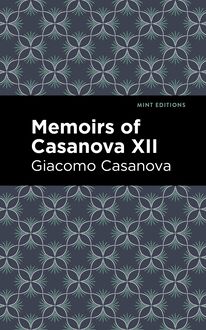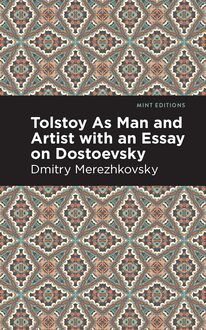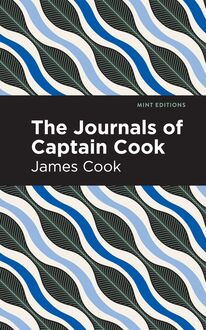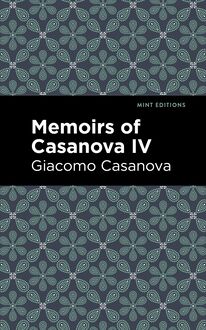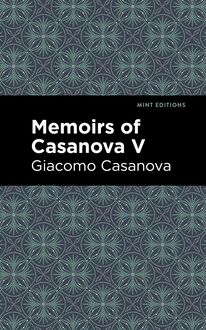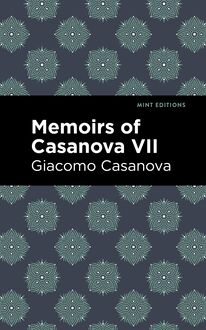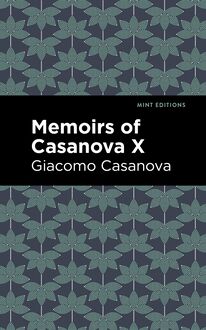-
 Univers
Univers
-
 Ebooks
Ebooks
-
 Livres audio
Livres audio
-
 Presse
Presse
-
 Podcasts
Podcasts
-
 BD
BD
-
 Documents
Documents
-
- Cours
- Révisions
- Ressources pédagogiques
- Sciences de l’éducation
- Manuels scolaires
- Langues
- Travaux de classe
- Annales de BEP
- Etudes supérieures
- Maternelle et primaire
- Fiches de lecture
- Orientation scolaire
- Méthodologie
- Corrigés de devoir
- Annales d’examens et concours
- Annales du bac
- Annales du brevet
- Rapports de stage
La lecture à portée de main
Vous pourrez modifier la taille du texte de cet ouvrage
Découvre YouScribe en t'inscrivant gratuitement
Je m'inscrisDécouvre YouScribe en t'inscrivant gratuitement
Je m'inscrisEn savoir plus
Vous pourrez modifier la taille du texte de cet ouvrage
En savoir plus

Description
Memoirs of Casanova (1792) is the autobiography of Italian adventure and socialite Giacomo Casanova. Written at the end of his life, the Memoirs capture the experiences of one of Europe’s most notorious figures, a man whose escapades as a gambler, womanizer, and socialite are matched only by his unique gift for sharing them with the world. More than perhaps any other man, Casanova sought to emulate the lessons of the Enlightenment on the level of everyday life, a sentiment captured perfectly in the opening sentence of his Memoirs: “I will begin with this confession: whatever I have done in the course of my life, whether it be good or evil, has been done freely; I am a free agent.”Memoirs of Casanova Volume V finds Giacomo Casanova serving as an aide to a powerful Venetian senator. Back in the city of his birth, surrounded with the vices and old friends who forced him to leave in the first place, Casanova soon finds himself in dire straits. When a practical joke goes horribly wrong, he escapes to the city of Parma, hoping to reinvent himself yet again. There, however, he unexpectedly falls in love with a Frenchwoman named Henriette, a soul whose wit and beauty tempt the young libertine—perhaps for the first and last time—to settle down and sow his wild oats. With a beautifully designed cover and professionally typeset manuscript, this edition of Giacomo Casanova’s Memoirs of Casanova is a classic of European literature reimagined for modern readers.
Sujets
Informations
| Publié par | Mint Editions |
| Date de parution | 29 juin 2021 |
| Nombre de lectures | 0 |
| EAN13 | 9781513286891 |
| Langue | English |
| Poids de l'ouvrage | 2 Mo |
Informations légales : prix de location à la page 0,0300€. Cette information est donnée uniquement à titre indicatif conformément à la législation en vigueur.
Extrait
Memoirs of Casanova Volume V
Giacomo Casanova
Memoirs of Casanova Volume V was first published in 1902.
This edition published by Mint Editions 2021.
ISBN 9781513281872 | E-ISBN 9781513286891
Published by Mint Editions®
minteditionbooks.com
Publishing Director: Jennifer Newens
Design & Production: Rachel Lopez Metzger
Project Manager: Micaela Clark
Translated By: Arthur Machen
Typesetting: Westchester Publishing Services
C ONTENTS I. Slight Misfortunes Compel Me to Leave Venice—My Adventures in Milan and Mantua II. My Journey to Cesena in Search of Treasure—I Take Up My Quarters in Franzia’s House—His Daughter Javotte III. The Incantation—A Terrible Storm—My Fright—Javotte’s Virginity Is Saved—I Give Up the Undertaking, and Sell the Sheath to Capitani—I Meet Juliette and Count Alfani, Alias Count Celi—I Make Up My Mind to Go to Naples—Why I Take a Different Road IV. I Purchase a Handsome Carriage, and Proceed to Parma with the Old Captain and the Young Frenchwoman—I Pay a Visit to Javotte, and Present Her with a Beautiful Pair of Gold Bracelets—My Perplexities Respecting My Lovely Travelling Companion—A Monologue—Conversation with the Captain—Tete-a-Tete with Henriette
I
S LIGHT M ISFORTUNES C OMPEL M E TO L EAVE V ENICE— M Y A DVENTURES IN M ILAN AND M ANTUA
O n Low Sunday Charles paid us a visit with his lovely wife, who seemed totally indifferent to what Christine used to be. Her hair dressed with powder did not please me as well as the raven black of her beautiful locks, and her fashionable town attire did not, in my eyes, suit her as well as her rich country dress. But the countenances of husband and wife bore the stamp of happiness. Charles reproached me in a friendly manner because I had not called once upon them, and, in order to atone for my apparent negligence, I went to see them the next day with M. Dandolo. Charles told me that his wife was idolized by his aunt and his sister who had become her bosom friend; that she was kind, affectionate, unassuming, and of a disposition which enforced affection. I was no less pleased with this favourable state of things than with the facility with which Christine was learning the Venetian dialect.
When M. Dandolo and I called at their house, Charles was not at home; Christine was alone with his two relatives. The most friendly welcome was proffered to us, and in the course of conversation the aunt praised the progress made by Christine in her writing very highly, and asked her to let me see her copy-book. I followed her to the next room, where she told me that she was very happy; that every day she discovered new virtues in her husband. He had told her, without the slightest appearance of suspicion of displeasure, that he knew that we had spent two days together in Treviso, and that he had laughed at the well-meaning fool who had given him that piece of information in the hope of raising a cloud in the heaven of their felicity.
Charles was truly endowed with all the virtues, with all the noble qualities of an honest and distinguished man. Twenty-six years afterwards I happened to require the assistance of his purse, and found him my true friend. I never was a frequent visitor at his house, and he appreciated my delicacy. He died a few months before my last departure from Venice, leaving his widow in easy circumstances, and three well-educated sons, all with good positions, who may, for what I know, be still living with their mother.
In June I went to the fair at Padua, and made the acquaintance of a young man of my own age, who was then studying mathematics under the celebrated Professor Succi. His name was Tognolo, but thinking it did not sound well, he changed it for that of Fabris. He became, in after years, Comte de Fabris, lieutenant-general under Joseph II, and died Governor of Transylvania. This man, who owed his high fortune to his talents, would, perhaps, have lived and died unknown if he had kept his name of Tognolo, a truly vulgar one. He was from Uderzo, a large village of the Venetian Friuli. He had a brother in the Church, a man of parts, and a great gamester, who, having a deep knowledge of the world, had taken the name of Fabris, and the younger brother had to assume it likewise. Soon afterwards he bought an estate with the title of count, became a Venetian nobleman, and his origin as a country bumpkin was forgotten. If he had kept his name of Tognolo it would have injured him, for he could not have pronounced it without reminding his hearers of what is called, by the most contemptible of prejudices, low extraction, and the privileged class, through an absurd error, does not admit the possibility of a peasant having talent or genius. No doubt a time will come when society, more enlightened, and therefore more reasonable, will acknowledge that noble feelings, honour, and heroism can be found in every condition of life as easily as in a class, the blood of which is not always exempt from the taint of a misalliance.
The new count, while he allowed others to forget his origin, was too wise to forget it himself, and in legal documents he always signed his family name as well as the one he had adopted. His brother had offered him two ways to win fortune in the world, leaving him perfectly free in his choice. Both required an expenditure of one thousand sequins, but the abbe had put the amount aside for that purpose. My friend had to choose between the sword of Mars and the bird of Minerva. The abbe knew that he could purchase for his brother a company in the army of his Imperial and Apostolic Majesty, or obtain for him a professorship at the University of Padua; for money can do everything. But my friend, who was gifted with noble feelings and good sense, knew that in either profession talents and knowledge were essentials, and before making a choice he was applying himself with great success to the study of mathematics. He ultimately decided upon the military profession, thus imitating Achilles, who preferred the sword to the distaff, and he paid for it with his life like the son of Peleus; though not so young, and not through a wound inflicted by an arrow, but from the plague, which he caught in the unhappy country in which the indolence of Europe allows the Turks to perpetuate that fearful disease.
The distinguished appearance, the noble sentiments, the great knowledge, and the talents of Fabris would have been turned into ridicule in a man called Tognolo, for such is the force of prejudices, particularly of those which have no ground to rest upon, that an ill-sounding name is degrading in this our stupid society. My opinion is that men who have an ill-sounding name, or one which presents an indecent or ridiculous idea, are right in changing it if they intend to win honour, fame, and fortune either in arts or sciences. No one can reasonably deny them that right, provided the name they assume belongs to nobody. The alphabet is general property, and everyone has the right to use it for the creation of a word forming an appellative sound. But he must truly create it. Voltaire, in spite of his genius, would not perhaps have reached posterity under his name of Arouet, especially amongst the French, who always give way so easily to their keen sense of ridicule and equivocation. How could they have imagined that a writer ‘a rouet’ could be a man of genius? And D’Alembert, would he have attained his high fame, his universal reputation, if he had been satisfied with his name of M. Le Rond, or Mr. Allround? What would have become of Metastasio under his true name of Trapasso? What impression would Melanchthon have made with his name of Schwarzerd? Would he then have dared to raise the voice of a moralist philosopher, of a reformer of the Eucharist, and so many other holy things? Would not M. de Beauharnais have caused some persons to laugh and others to blush if he had kept his name of Beauvit, even if the first founder of his family had been indebted for his fortune to the fine quality expressed by that name?
Would the Bourbeux have made as good a figure on the throne as the Bourbons? I think that King Poniatowski ought to have abdicated the name of Augustus, which he had taken at the time of his accession to the throne, when he abdicated royalty. The Coleoni of Bergamo, however, would find it rather difficult to change their name, because they would be compelled at the same time to change their coat of arms (the two generative glands), and thus to annihilate the glory of their ancestor, the hero Bartholomeo.
Towards the end of autumn my friend Fabris introduced me to a family in the midst of which the mind and the heart could find delicious food. That family resided in the country on the road to Zero. Card-playing, lovemaking, and practical jokes were the order of the day. Some of those jokes were rather severe ones, but the order of the day was never to get angry and to laugh at everything, for one was to take every jest pleasantly or be thought a bore. Bedsteads would at night tumble down under their occupants, ghosts were personated, diuretic pills or sugar-plums were given to young ladies, as well as comfits who produced certain winds rising from the netherlands, and impossible to keep under control. These jokes would sometimes go rather too far, but such was the spirit animating all the members of that circle; they would laugh. I was not less inured than the others to the war of offence and defence, but at last there was such a bitter joke played upon me that it suggested to me another, the fatal consequences of which put a stop to the mania by which we were all possessed.
We were in the habit of walking to a farm which was about half a league distant by the road, but the distance could be reduced by half by going over a deep and miry ditch across which a narrow plank was thrown, and I always insisted upon going that way, in spite of the fright of the ladies who always trembled on the narrow bridge, altho
-
 Univers
Univers
-
 Ebooks
Ebooks
-
 Livres audio
Livres audio
-
 Presse
Presse
-
 Podcasts
Podcasts
-
 BD
BD
-
 Documents
Documents
-
Jeunesse
-
Littérature
-
Ressources professionnelles
-
Santé et bien-être
-
Savoirs
-
Education
-
Loisirs et hobbies
-
Art, musique et cinéma
-
Actualité et débat de société
-
Jeunesse
-
Littérature
-
Ressources professionnelles
-
Santé et bien-être
-
Savoirs
-
Education
-
Art, musique et cinéma
-
Actualité et débat de société
-
Actualités
-
Lifestyle
-
Presse jeunesse
-
Presse professionnelle
-
Pratique
-
Presse sportive
-
Presse internationale
-
Culture & Médias
-
Action et Aventures
-
Science-fiction et Fantasy
-
Société
-
Jeunesse
-
Littérature
-
Ressources professionnelles
-
Santé et bien-être
-
Savoirs
-
Education
-
Loisirs et hobbies
-
Art, musique et cinéma
-
Actualité et débat de société
- Cours
- Révisions
- Ressources pédagogiques
- Sciences de l’éducation
- Manuels scolaires
- Langues
- Travaux de classe
- Annales de BEP
- Etudes supérieures
- Maternelle et primaire
- Fiches de lecture
- Orientation scolaire
- Méthodologie
- Corrigés de devoir
- Annales d’examens et concours
- Annales du bac
- Annales du brevet
- Rapports de stage



